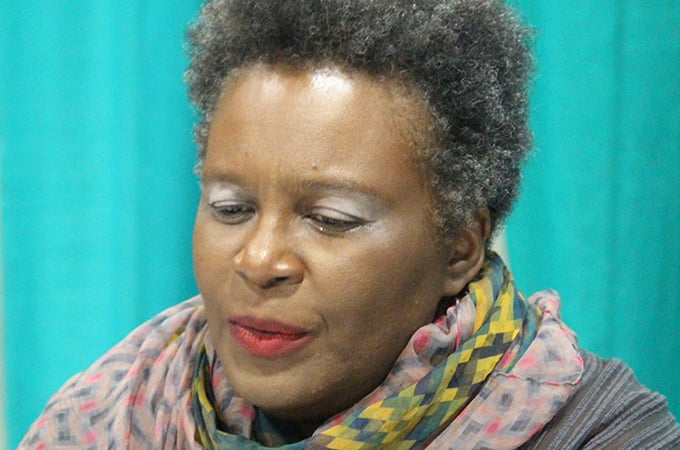Since February 1926, we have recognized some version of what we now call Black or African-American History Month. The Association for the Study of Negro Life and History, founded in 1915 by historian Carter G. Woodson, packaged the inaugural “Negro History Week” as a celebration that included the birthdays of Abraham Lincoln and Frederick Douglass.
This Black History Month, I suggest we allow black voices within the Americas to speak for themselves. From an autobiography to black-epic poems, I hope the works below inspire insight into the dignity at the heart of black survival, intellectual life, and narrative.
The Omar Ibn Said Collection
While many of us have seen Steve McQueen’s 12 Years a Slave, Quentin Tarantino’s Django Unchained, and the television adaptation of Alex Haley’s Roots, most of us have little to no exposure to black autobiography in the antebellum era of legalized slavery. Frederick Douglass’ Narrative of the Life of Frederick Douglass, an American Slave has been widely published and studied, but other unpublished narratives are waiting to be discovered.
One of these is a narrative by West African Omar Ibn Said, whose 1831 Arabic manuscript is currently being featured by the Library of Congress. The digitized collection also includes an 1860 English translation of the highly educated Ibn Said’s short autobiography. Ibn Said’s Muslim background makes his narrative particularly rare. In his own hand, and in the Arabic words he could remember and recover after over 20 years of forced slavery in America, Ibn Said tells the story of his life.
Ibn Said, at the time in his early 60s, writes of having a father, and a mother, and siblings in his homeland. He writes of his devotion to “Mohammad, the Apostle of God,” of his yearly pilgrimage to Mecca, and of his morning walks to the mosque. Ibn Said converted to Christianity, but his hand does not waver in recounting his earlier devotion to the Muslim faith. Ibn Said’s autobiography, in spite of being a story of violence, and in spite of being a story of slavery, is also the story of a devout man who maintains his faith in a higher power. It is the story of a man whose language survived, even if it was in parts. It is the story of a man who has both a “small and feeble” body and a salient voice that anchors each sentence in bell-like clarity.
Zong!
The next work wrestles with the paradoxical nature of language and voice in black narrative. In a 2017 interview with Lemonhound3.0, Trinidad- and Tobago-born Canadian poet M. NourbeSe Philip remarked, “I begin from a position of extreme distrust of language and do not believe that [E]nglish—or any European language, for that matter—can truly speak our truths without the language in question being put through some sort of transformative process. … A language as deeply implicated in imperialism as [E]nglish has been cannot but be contaminated by such a history and experience.”
Philip, who was at one time a practicing lawyer, draws from a 1793 legal decision, Gregson vs Gilbert, for her work Zong! (2008). The case details a dispute between the owners of a British slave-ship Zong and their insurers about a claim for cargo (slaves) “lost” during a passage to Jamaica. As Philip’s website explains, “some 150 Africans” were “murdered by drowning” at the captain’s orders.
From the legal document, the poet extracts and sculpts into shape the voices of the murdered Africans. Where the “official” legal archive for the case silences the murdered in favor of technical language about the insurance claim, the poem allows the dead to haunt us.
“Zong! #14” reads: “the truth is/ the ship sailed/ the rains came/ the loss arose/the negroes is/ the truth was”
Zong! remembers what was lost by articulating the shards of each black body immersed in the Atlantic, and of each black body buried in an insurance claim. Zong! transforms this language to bring the dead back to the surface.
Citizen: An American Lyric
Jamaican American Claudia Rankine’s Citizen: An American Lyric (2014) is a book-length poem in which the page, time, and the poet’s emotional reality converge within lyrical form. In an interview with Foothill (2014), the poet explains that “the ability to question and to circle and to prod and to express one’s feelings about things that are ugly and to allow the self to feel its response to those ugly things … the beauty maybe is within the time the page allows for the investigation.”
Rankine’s Citizen spends time on her relation to blackness in America. Rankine ruminates on memory in part IV of her epic poem: “You like to think memory goes far back though remembering was never recommended. Forget all that, the world says. The world’s had a lot of practice.” Memory, remembering, and the facts embedded in black narrative are not “history.” While the past can be a blunt instrument, the lyrical Citizen is a force field against forgetting, historical erasure, and the idea the past is past.
Like Omar Ibn Said’s autobiography and NourbeSe Philip’s Zong!, Claudia Rankine’s Citizen works to translate black experiences into an echoing present.
Learn more about undergraduate programs of study at the University of Redlands, including English: Literature and Writing and Race and Ethnic Studies.






